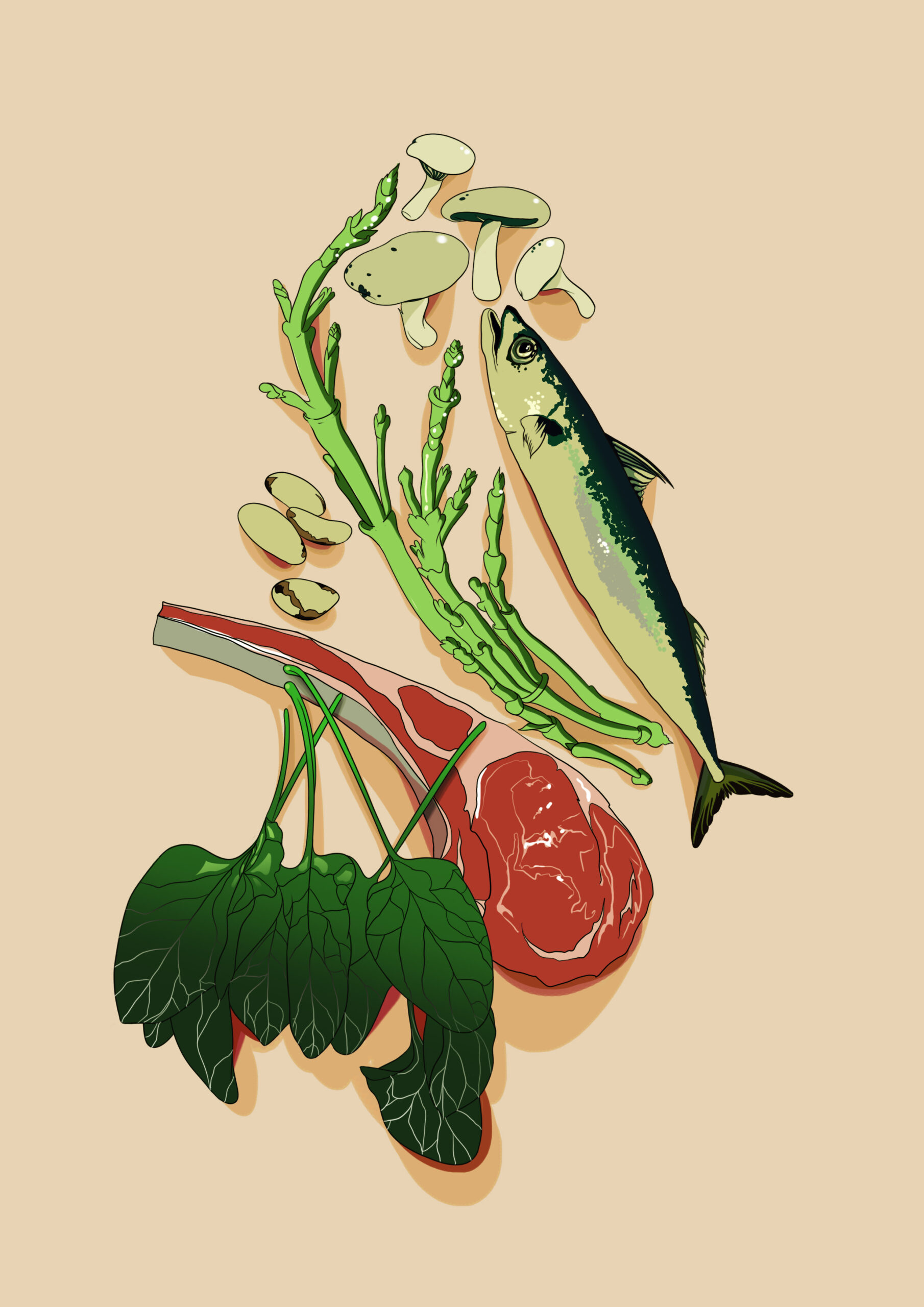Good’s nutrition columnist Ben Warren on unlocking your energy levels.
Words Ben Warren. Illustration Janelle Barone, Makers MGMT.
Before we get into what foods to eat to use your body fat as a fuel, I want to give you a basic understanding of energy production. Our bodies don’t directly run on the foods we eat. We need to oxidise (burn) the carbohydrates, proteins and fats in order to produce the energy molecule adenosine triphosphate (ATP). ATP is the currency of energy within your body, like the currency of money in New Zealand is the New Zealand dollar. About 90 per cent of the ATP your body and cells need is made in your cells within an encapsulated organelle called the mitochondria.
So: we eat proteins, carbohydrates and fats. These get broken down and burned within the mitochondria and ATP is produced. Lots of food means lots of energy, right? Well, not quite.
We’ve been told we gain weight by eating too much food and not exercising enough. So if we gain weight by eating too much and don’t burn off this extra energy by exercising, we are told we store this extra energy as body fat for when we need it.
If it was this simple, people who have excess body fat should have excess energy, right? Wrong. Most people with extra body fat are tired – just ask them! The problem is that they struggle to access the excess energy stored in fat for energy, leaving them tired, overweight and hungry.
Two things need to happen to use body fat as a fuel: Firstly, you need to burn fat within the mitochondria to produce ATP – think of these as little engines needing the right fuel. Secondly, you need the right cellular signalling from hormones to tell your body to make energy at a cellular level – think of this as the accelerator.
Our bodies can burn carbohydrates, proteins or fats to make ATP. While most people are interested in how they can burn more fat for energy, first we need to ensure the whole system of getting energy from these molecules is working well. The ability to turn food into energy is dependent on vitamin and mineral co-factors. If there aren’t enough of these key micronutrients, then you’re going to struggle to make ATP from any food.
Ensuring we are getting enough B vitamins from our diet to meet our energy needs is essential. The top foods for B vitamins include beef, liver, lamb, milk, mushrooms, spinach, legumes, nuts and wholegrains. I’m not a huge fan of gluten (think wheat, barley and rye) so I’d recommend other wholegrains such as quinoa, buckwheat, millet and rice.
The nutrient carnitine carries fat into the mitochondria prior to being oxidised to produce energy. Without it, you’re going to struggle to burn fat. Carnitine is an amino acid (found in proteins) it’s no surprise that the highest carnitine-containing foods are beef, milk, fish and chicken breast. Ensuring you are eating adequate amounts of these is essential to burning fat at a cellular level.
The second aspect to burning fat as a fuel is having the right hormone signalling. This is where the thyroid comes in. Your thyroid makes a hormone called thyroxine, (T4) which gets activated to another hormone (T3). These hormones control your body’s base metabolic rate (how many calories you burn doing nothing), and your body’s ability to burn proteins, fats and carbohydrates at the cellular level.
There are a couple of key foods you need to eat to ensure your thyroid has the raw materials to make these hormones. The first is seaweed, for iodine (four iodine atoms are required to make thyroxine; without sufficient iodine your thyroid may struggle to make enough hormones to meet your energy needs). Another key food for your thyroid is Brazil nuts, for selenium.
Although energy production within our bodies is extremely complex, as you can see, there are still some simple diet changes we can make to help support energy production and allow us to get the most out of our lives.
Ben Warren is a nutrition and holistic health expert. For more from him visit bepure.co.nz







